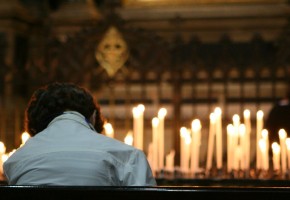When the church gets it wrong
The woman looked at me with fear, pain, and trust—all things that the church has instilled in its faithful all these centuries.
It had always been a mysterious relationship. She came to church once a year or so, and she’d always say, “I’d like to talk to you, sometime . . . do you ever have any time?”
How does one respond to such a question? “Don’t you realize that I’m busy beyond any mere mortal’s imagining?”
I’d said yes, once. We’d gone to a prestigious venue for what was called lunch, but was in fact a lesson in obsequiousness from the waiter. My companion played around with the conversation like a child would play with his food. We passed the baton of speech from one side of the table to the other. She sat very still, with fearful eyes that anticipated my rejection of her with a dismissive remark or unexpected leap to the feet, and departure. I’d learned that she’d been married once, but the marriage was short-lived. She reminded me of a jumpy batter who’s afraid the softball is going to hit her.





